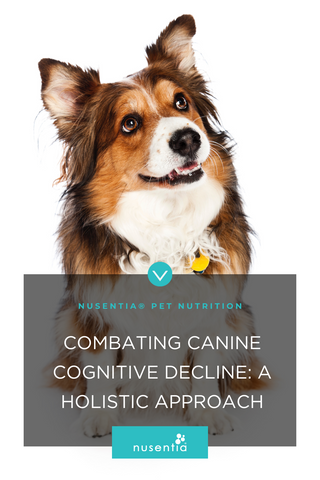As our canine companions age, they may experience changes in the brain that impact behavior, memory, and learning. Research indicates that dogs, much like humans, can suffer from cell-degenerative conditions akin to Alzheimer’s disease, known in canines as Canine Cognitive Dysfunction Syndrome (CCDS).

Noticing signs such as forgetfulness, disorientation, unfamiliarity with family members, sleep disturbances, and other mental lapses in your dog could indicate the onset of CCDS. Canine Cognitive Dysfunction becomes increasingly common with age, affecting approximately 25% of dogs over 10 years old, and the prevalence rises to 60% for dogs 15 years and older.
Supporting Your Aging Dog: Active Minds Lead to Healthier Lives
Engaging your pet in mental and physical activities plays a crucial role in slowing cognitive decline. The brain, much like a muscle, thrives on stimulation. Activities that challenge mental faculties in humans—such as puzzles, learning new skills, and social interactions—have been shown to stave off mental decline. This principle applies to our pets as well, emphasizing the importance of keeping them mentally engaged through interactive play, training, and socialization.
Moderate Exercise for Cognitive Health: Walking, in particular, benefits the brain by boosting blood circulation, thereby enhancing the delivery of oxygen and glucose. This exercise can lead to improved brain function and a reduction in the negative impacts of aging on cognitive health.
Nutritional support plays a pivotal role in maintaining cognitive health. Omega-3 fatty acids, for instance, have been shown to positively affect cognitive function. Incorporating a high-quality Omega-3 supplement like Celavin™ into your dog’s diet can provide essential nutrients to support brain health.
Nusentia’s Commitment to Pet Cognitive Wellness
In line with our mission to elevate pet nutrition beyond human standards, Nusentia offers Spectrin™ Chews for dogs, a specially formulated blend of vitamins and antioxidants designed to support overall health, including cognitive function. This comprehensive approach to nutrition supports the management of symptoms associated with cognitive decline in aging dogs.
By integrating both Celavin and Spectrin™ Chews into your aging dog’s care routine, you’re not just addressing symptoms—you’re proactively supporting their overall wellness and cognitive health. These scientifically-backed solutions represent our commitment to offering the best in pet nutrition, supporting your efforts to ensure your pet enjoys a fulfilling, vibrant life.
Additional Resources
For more insights into caring for senior dogs and optimizing their health and wellbeing, explore our article: 5 Steps to Caring for Senior Dogs.
For natural, trusted pet health supplements with proven formulas to improve your furry friend's overall health, visit Nusentia, a brand trusted by veterinarians and pet parents alike since 2008.



